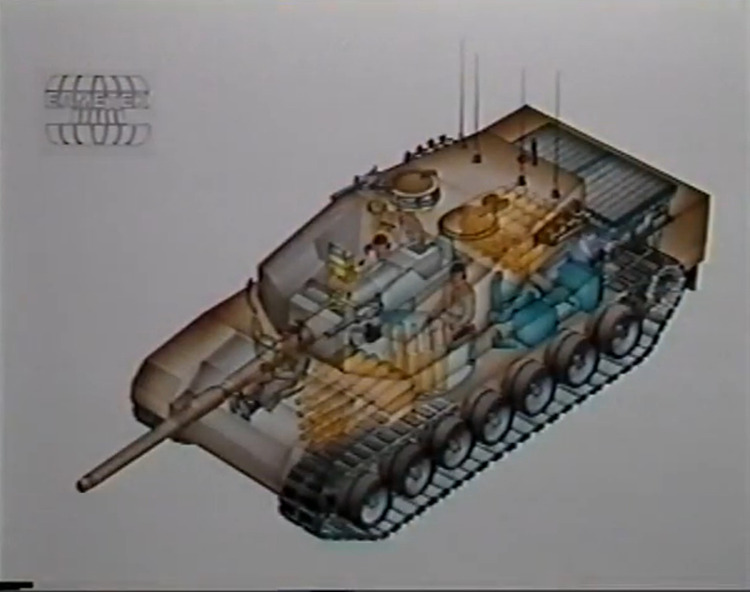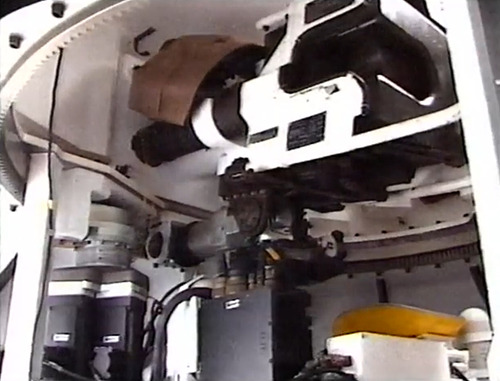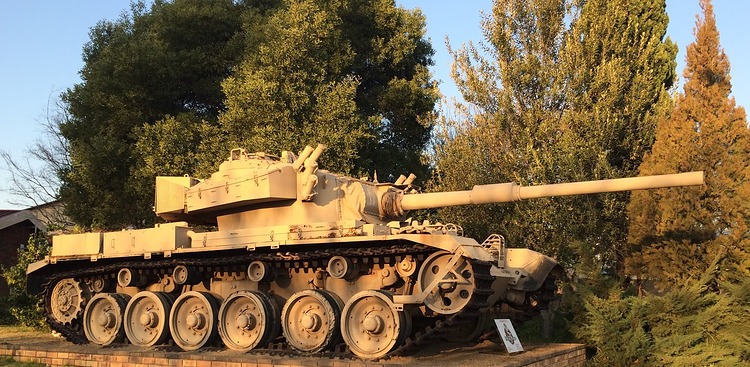- Yes
- No (Explain why)
Suggestion No.86
G’day lads. I want to suggest the planned production variant of the TTD, featuring namely it’s intended 120mm cannon, as well as machine guns :)
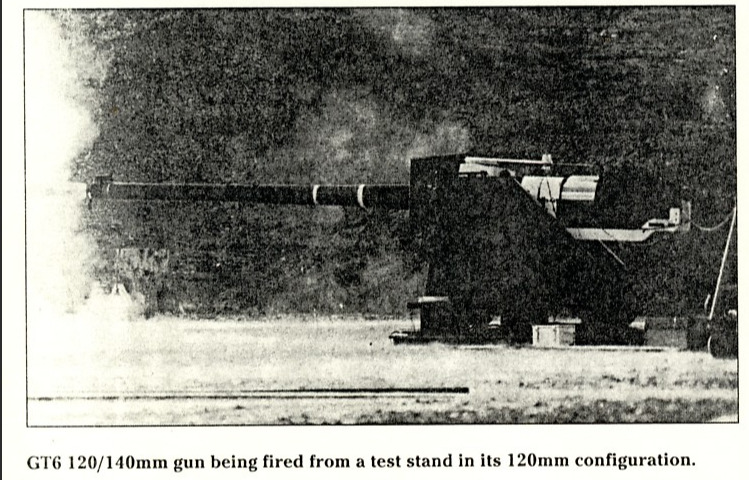
Description:
Spoiler
The Tank Technology Demonstrator (TTD) was South Africa’s attempt in the 1980s and early '90s to develop a next-generation main battle tank to replace the Olifant under Project Loggim. Although funding issues kept it from entering production, it still did help a lot with other future vehicles. Designed for harsh African conditions and conscript use, the TTD featured a conventional layout with layered spaced armor capable of deflecting APFSDS and HEAT rounds. It mounted a 105 mm L7 rifled gun but was built to accommodate a built 120mm cannon once it was going to enter production, or a 140mm smoothbore cannon. Its advanced fire control system allowed precise engagement, even on the move, and crew survivability was enhanced with blast panels and compartment isolation.
History:
Spoiler
The TTD project began in 1983 under the codename “Loggim”, driven by the South African Defence Force’s need to replace the aging Olifant MBT, which itself is a heavily modified British Centurion tank. The goal was to create a fully indigenous main battle tank that could serve well into the 21st century, created for South Africa’s operational conditions in northern Namibia and southern Angola.
The design emphasized self-deployment over long distances, ease of maintenance by conscripts, and survivability in remote bush warfare, with the assumed adversary being the Soviet T-72 and its successors. The project was led by ARMSCOR, with LIW (a Denel division) responsible for turret and armament, and Reumech OMC for the chassis. Other contributors included Kentron, Eloptro, IST, M-Tek, Grinel, Booyco, and PDS.
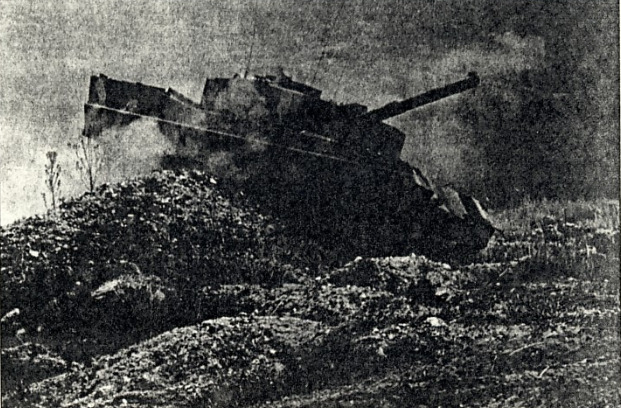
By the early 1990s, the Border War had ended, and South Africa’s defense budget was significantly reduced. Despite this, the TTD was completed in 1992 as a technology demonstrator, not a production vehicle. It incorporated advanced systems in firepower, mobility, and protection, many of which were later adapted for upgrades to the Olifant Mk 1B and Rooikat vehicles.
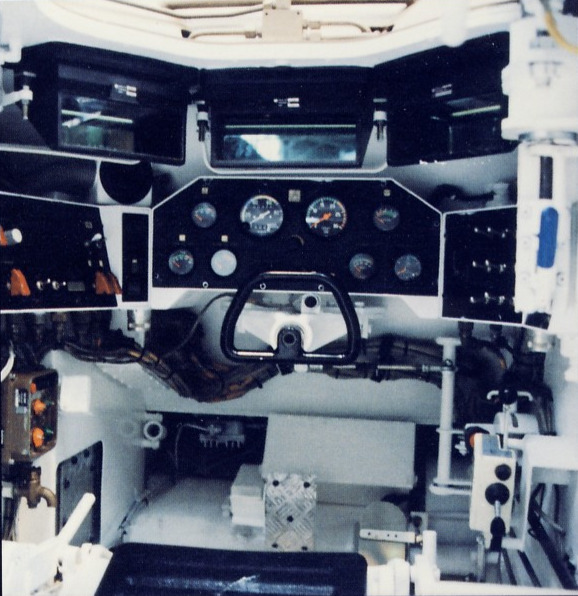
Following South Africa’s first democratic elections in 1994, the new government reassessed its defense priorities. With international arms markets reopened, the South African National Defence Force (SANDF) concluded that purchasing foreign MBTs would be more cost-effective than domestic production under Project Aorta, which also failed. Thus, the TTD remained a one-off prototype, so the production variant with the 120mm (and 140mm, which I don’t think was built?) wasn’t possible, with only 1 cannon being made as far as I know. Allegedly, the cannon comes from the L52 smoothbore cannon or got some inspirations from it.
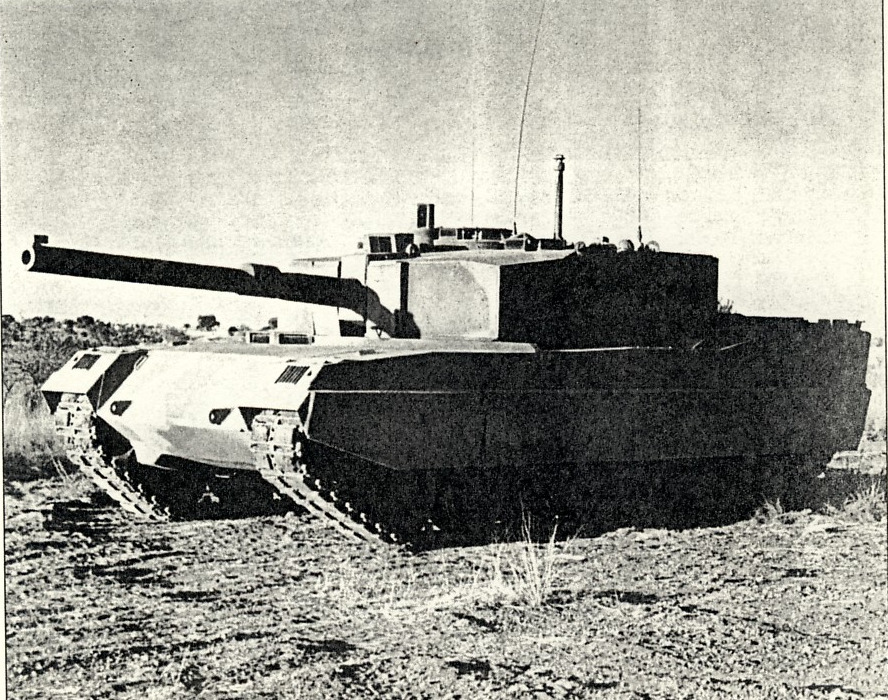
Armaments:
Spoiler
GT6 120mm cannon capable of firing any NATO rounds at it’s time
The cannon is also capable of wielding a 140mm smoothbore cannon, as the turret was built to handle both 120 and 140mm cannons, however I cannot find images of a South African 140mm cannon
1 coaxial 7.62mm Browning MG
1 roof mounted 7.62mm Browning MG
Digital FCS
Spall Liners
Thermals
etc. (seen below)
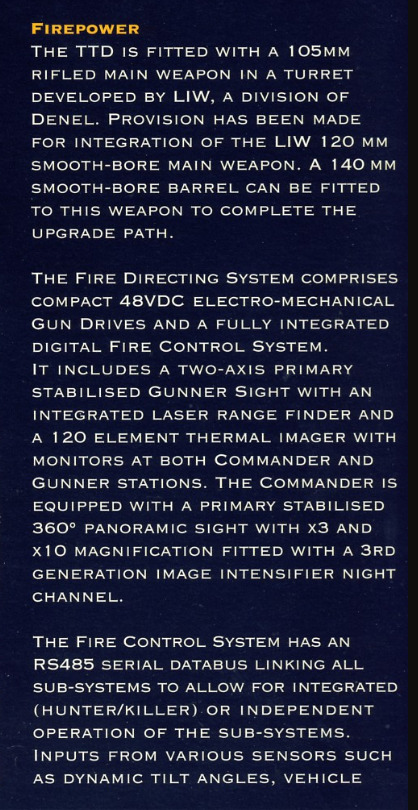
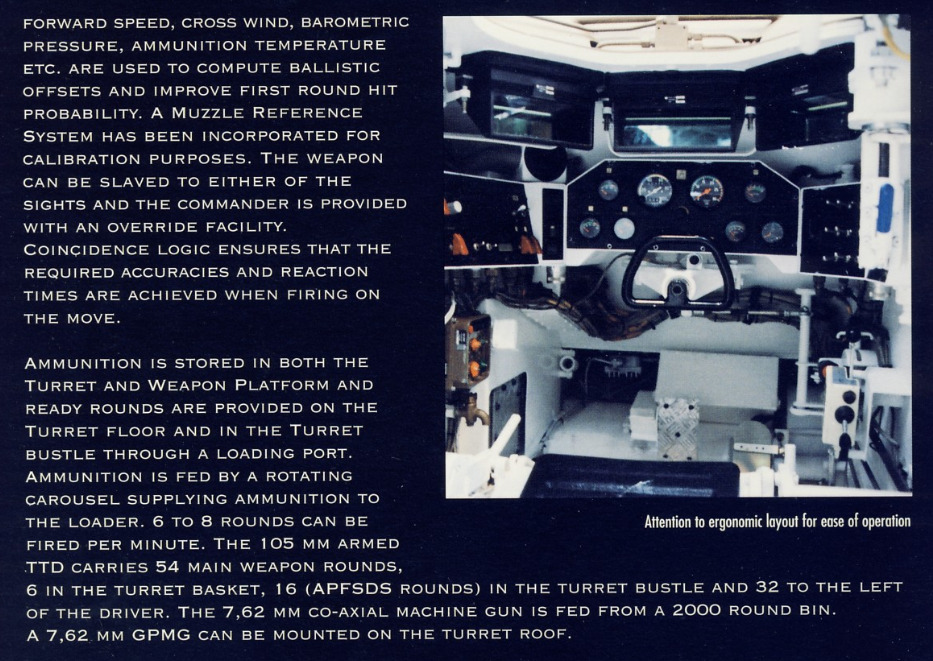
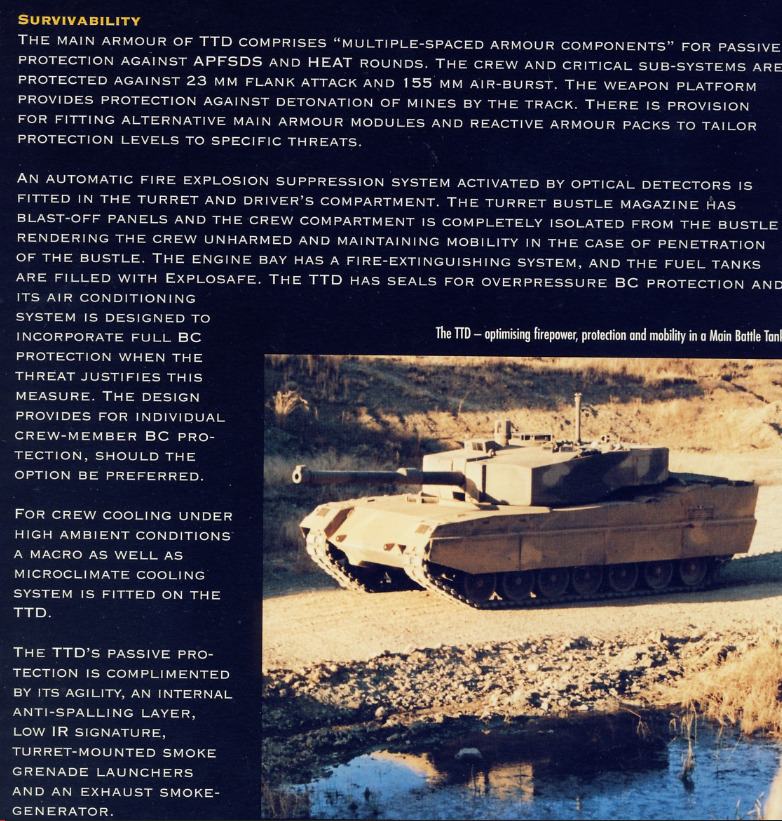
Specifications:
Spoiler
The TTD measures approximately 9.88m in overall length, with a hull length of 7.78m, a width of 3.62m, and a turret roof height of 2.58m, extending to 2.99m at the commander’s sight. The combat weight of the tank is around 58.3t. It is powered by a V-8 twin-turbocharged, intercooled diesel engine producing 1230hp (well, 1233hp) at 2100 rpm, with torque reaching 4400Nm at 1500rpm, optimized for operation in ambient temperatures up to 48°C. This makes it go up to 71km/h on roads or 35km/h on cross-country, it also has 32km/h reverse speed. Survivability features include engine-generated and turret-mounted smoke screens, reduced infrared and acoustic signature, compact silhouette, and camouflage. The frontal armor resists modern main battle tank rounds, while all-round protection is effective against 23mm projectiles, 155mm airburst munitions, and 7.62mm armor-piercing rounds. It also shields the crew from a single mine blast under the tracks. Internal survivability is enhanced by an anti spalling liner (yaknow, spall liners), suppression systems for fuel tank explosions, redundant electrical and control systems, automatic fire suppression in the crew and engine compartments, and blast-off panels in the bustle to vent ammunition cook-offs.
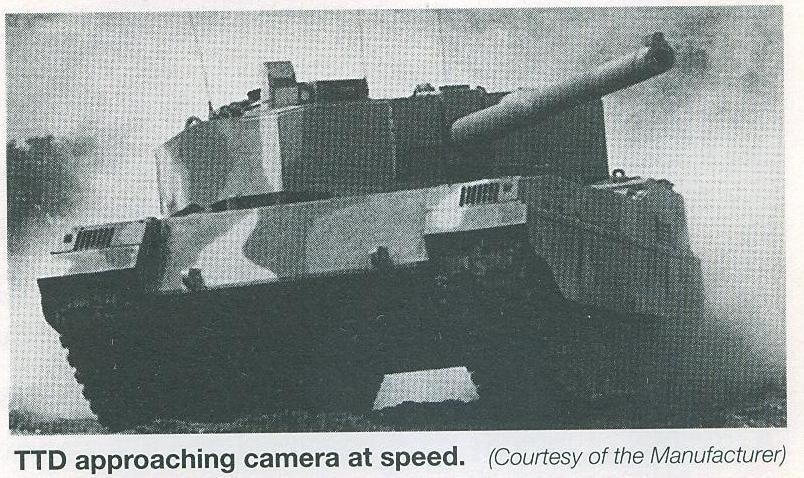
Sources:
Spoiler
Reumech TTD brochure
Jane’s A&A 1994-95
Tank Technology Demonstrator (TTD) - Tank Encyclopedia
South African prototypes, projects, concepts, etc. | Page 20 | Secret Projects Forum
https://www.saarmourmuseum.com/tanktechnologydemonstrator
Fact file: SANDF projects: past, present & future - defenceWeb
Thanks a lot for reading! If you have any extra information, then feel free to share them in the replies! As always, have a good day :)
